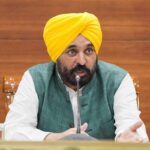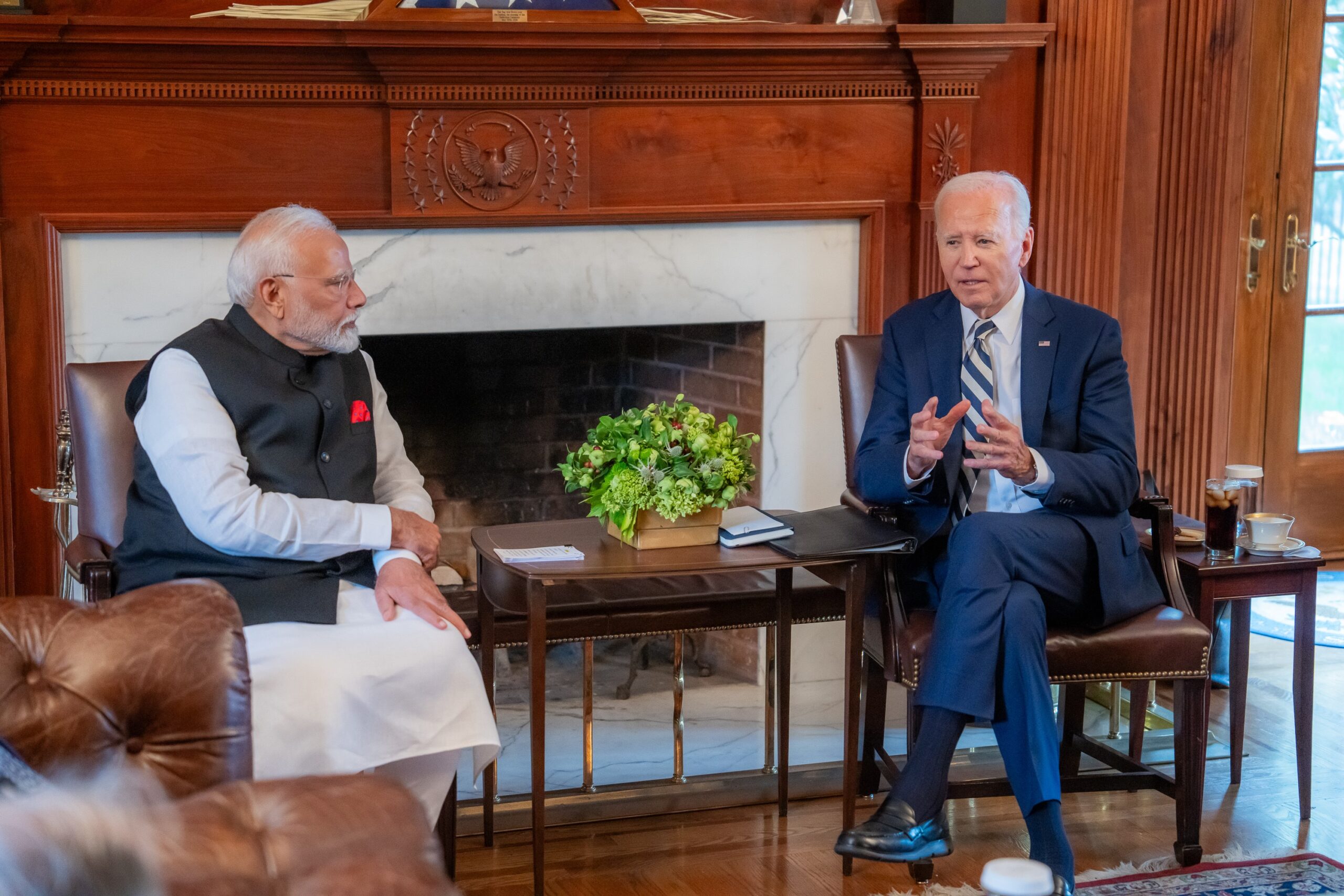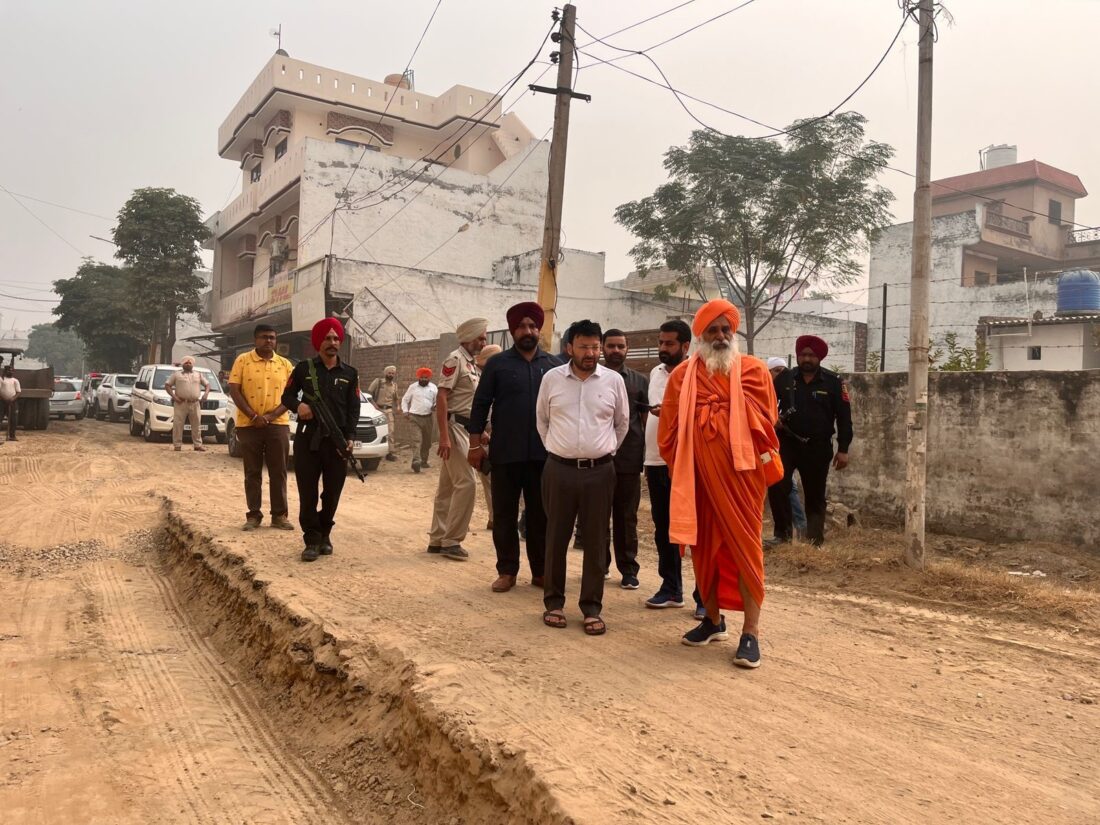North News
New Delhi, September 22
US President Joe Biden and Prime Minister Narendra Modi have addressed various issues, including the MQ-9B Predator drone agreement and the establishment of a semiconductor plant in Kolkata. The leaders announced a pivotal agreement to establish a cutting-edge semiconductor fabrication plant, aimed at advancing national security, next-gen telecommunications, and green energy technology.
The fabrication plant will focus on producing infrared, gallium nitride, and silicon carbide semiconductors, supported by the India Semiconductor Mission and a strategic partnership involving Bharat Semi, 3rdiTech, and the U.S. Space Force.
On defense, President Biden welcomed India’s acquisition of 31 General Atomics MQ-9B remotely piloted aircraft, enhancing India’s intelligence, surveillance, and reconnaissance (ISR) capabilities. Both leaders praised the progress of the U.S.-India Defense Industrial Cooperation Roadmap, which includes co-production of jet engines, munitions, and unmanned systems. They highlighted the teaming of Liquid Robotics with Sagar Defence Engineering to co-develop unmanned surface vehicles, bolstering maritime domain awareness.
The leaders commended expanded defense ties, including the establishment of a Maintenance, Repair, and Overhaul (MRO) facility for C-130J Super Hercules aircraft in India, a collaboration between Lockheed Martin and Tata Advanced Systems. They also welcomed India’s move to implement a uniform Goods and Services Tax (GST) of 5% on aircraft parts, a step toward making India a global hub for aviation services.
Biden and Modi also celebrated progress in defense innovation, particularly under the INDUS-X initiative, which promotes co-development in undersea communications and space situational awareness.
The leaders praised the collaboration as part of broader efforts to build secure and sustainable semiconductor supply chains. This includes Global Foundries’ (GF) creation of the GF Kolkata Power Center, which is set to enhance semiconductor R&D and drive innovations in AI, connected vehicles, IoT devices, and data centers. GF’s long-term goals include expanding manufacturing partnerships with India, which will generate high-quality jobs in both countries.
In addition to semiconductors, Biden and Modi celebrated NASA and ISRO’s progress towards conducting joint scientific research aboard the International Space Station in 2025. They lauded the Civil Space Joint Working Group’s initiatives, which will explore further collaboration in civil and commercial space domains.
Both leaders underscored the importance of enhancing research and development ties between US and Indian universities, mobilizing over $90 million in joint government funding. The newly launched U.S.-India Advanced Materials R and D Forum will also boost collaboration between academia, national labs, and private sector researchers.
Further strengthening their tech partnership, Biden and Modi announced new joint research grants in fields such as next-gen telecommunications, machine learning, and sustainability, with a combined outlay of over $15 million. Additionally, 17 new awards were made for U.S.-India cooperation on AI and quantum research.
On the clean energy front, both leaders announced the launch of the U.S.-India Roadmap to Build Safe and Secure Global Clean Energy Supply Chains. This $1 billion initiative aims to accelerate renewable energy, energy storage, and zero-emission technologies. The U.S. International Development Finance Corporation (DFC) has extended loans totaling $750 million to Tata Power Solar and First Solar for clean energy projects in India.
The leaders reaffirmed their commitment to enhancing collaboration in hydrogen safety and clean energy manufacturing, while promoting critical minerals supply chains. They emphasized the importance of the Green Transition Fund, which aims to anchor investments in renewable energy.
In the realm of global health, Biden and Modi launched the US-India Drug Policy Framework, which seeks to combat illicit drug production and trafficking, while promoting public health initiatives. They applauded the first U.S.-India Cancer Dialogue, which fostered new R&D efforts to tackle cancer. The leaders also highlighted the Development Finance Corporation’s $50 million loan to Panacea Biotech to manufacture vaccines for children.
In support of small and medium-sized enterprises (SMEs), the leaders announced a new Memorandum of Understanding between India’s Ministry of Micro, Small, and Medium Enterprises and the U.S. Small Business Administration. This MoU will drive capacity-building initiatives, focusing on digital trade, green economy, and women-owned businesses.
Biden and Modi also celebrated the new U.S.-India Global Digital Development Partnership, which aims to deploy emerging digital technologies in Asia and Africa. They highlighted efforts to strengthen trilateral cooperation with Tanzania, focusing on renewable energy projects that enhance energy infrastructure in the Indo-Pacific region.
The leaders recognized India’s commitment to the Indo-Pacific Economic Framework for Prosperity (IPEF), a multilateral initiative aimed at advancing resilience, sustainability, and inclusiveness across 14 countries. They also lauded the ratification of the Agreement on the Means of Prohibiting and Preventing the Illicit Import, Export, and Transfer of Cultural Property, marking the return of 297 Indian antiquities from the U.S. to India.
In defense and strategic cooperation, both countries reaffirmed their commitment to regional stability, with India hosting the largest bilateral exercise, TIGER TRIUMPH, earlier this year. They also welcomed new cyber cooperation initiatives, including joint cybersecurity training and vulnerability mitigation in energy and telecom networks.
The leaders are set to build on the outcomes of India’s G20 presidency, advancing shared priorities at the upcoming G20 Summit in Rio de Janeiro, focusing on development finance, debt restructuring, and sustainable development goals.
















